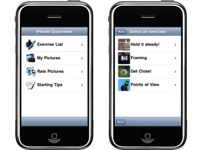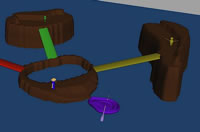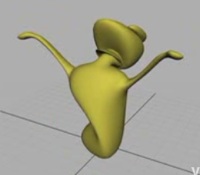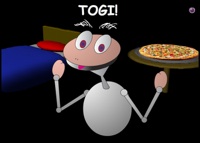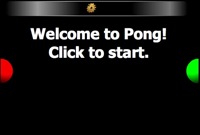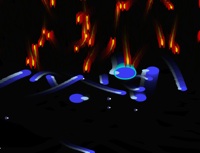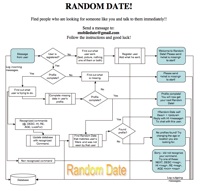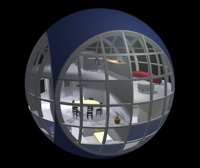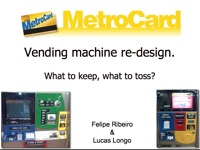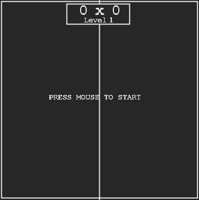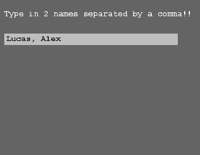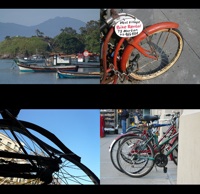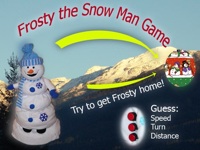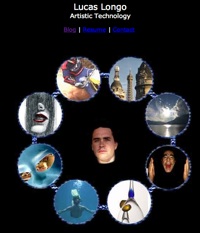INTERACTIVE TELECOMMUNICATIONS PROGRAM
Tisch School of Arts - New York University
Masters in Professional Services - May 08
Pocket Learning - Thesis Project
Advisor: Nancy Hercinger
This course is designed to help students define and execute their final thesis project in a setting that is both collegial and critical. It is structured as a series of critique and presentation sessions in which various aspects of individual projects are discussed: the project concept, the elaboration, the presentation, the process and time-table, the resources needed to accomplish it, and the documentation.
Project: Pocket Learning
Pocket Learning is a platform to deliver how-to, need-to, just-in-time learning anywhere, anytime.
It is an application for the iPhone with a catalogue of short procedural instructions, self-paced lessons, interactive examples and participatory exercises.
Users can submit their results to be reviewed by their peers or experts in the subject matter.
The application is designed to take advantage of the rich multi-media capabilities of the iPhone, its intuitive and revolutionary interface, as well as its connectivity and many sensors (camera, tilt-sensor, location).
As an example, I created a basic photography lesson to demonstrate the potential of the platform and to experiment with mobile education.
LINKS / DOCUMENTATION:
Thesis paper - first draft
Web version - best viewed using Safari
iPhone version - interface mock-up
Blog postings - progress and documentation
Digital Imaging Reset
Professor: Eric Rosenthal
This course is a workshop that looks at changing the rules for capturing and printing digital imagery. By gaining a better understanding of the engineering fundamentals and limitations of digital photography, students can produce breathtaking images with all the benefits of digital media but with an image quality that rivals film.

Week 1 | Week 2 | Week 3 | Week 4 | Week 5 | Week 6 | Week 7 | Week 8
____
Fall 2007
Computers for the Rest of You | Computational Forms
From Physical to Virtual Spaces and Back | Inclusive Game Design
Computers for the Rest of You
Professor: Dan'O Sullivan
Examining how our body's information can be used as an input to computer applications, installations, or other investigative tools.
Busted!
A video installation / game that utilizes eye-tracking to test if we can control our gaze when presented with provocative images:
Computational Forms
Professor: Jared Schiffman
"In this code-based class, students learn to construct two and three-dimensional forms programmatically. Students are introduced to a variety of techniques for defining the contours of shapes in two dimensions and the structures of objects in three dimensions. Emphasis is placed on understanding the mathematics that underlie computational geometry. In addition to static forms, students create kinetic shapes that exist in time and even respond to user interaction." - couldn't have described it better than Jarred himself.
Also see: All homework postings
3D Bubbles
From Physical to Virtual Spaces and Back
Professor: Jean-Marc Gautier
"The course focuses on speed-prototyping of simple 3D worlds interacting with sensors from the physical world and with data from the web. We will design simple virtual worlds for interactive storytelling, immersive learning, collaborative work and gaming."
TogiLand
A simple interactive 3D game using Maya to model and Virtools to control the animations and cameras.
Google Earth Exploration
A quick video of me playing around with Google Earth and its several filters and layers.
Inclusive Game Design
Professor: Amit Pitaru
Developing games for kids with disabilities.
TOGI!
A game in Flash designed for and tested successfully by kids with disabilities.
____
Spring 2007
Nature of Code | Ubiquitous Computing for Mobile Devices | Expanding Interactive Video | Fabricating Information
Nature of Code
Professor: Daniel Shiffman
This class focuses on the programming strategies and techniques behind computer simulations of natural systems. We explore topics ranging from basic mathematics and physics concepts to more advanced simulations of complex systems. Subjects covered include forces, trigonometry, fractals, cellular automata, self-organization, and genetic algorithms.
Ecosystem
Ubiquitous Computing for Mobile Devices
Professor: Dennis Crowley
A class that focuses on the ubiquitous aspect of mobile applications - how can we design applications that use features that are common to "all" phones out there.
Judge Me
A mobile based interaction game where you see if first impressions really count. Be judged and judge your peers right on your phone!
Expanding Interactive Video
Professor: Scott Fitzgerald
A class that explores the evolution of video art into interactive video performances and installations.
The Eyes
An interactive live video performance.
Fabricating Information
Professors: Mark Collins and Toru Hasegawa
"Rapid prototyping and personal fabrication increasingly open possibilities of production that will re-invent our understanding and relationship with everyday objects and material culture. The seminar will function as both an introduction to different CNC + prototyping equipment as well as a studio in which to test the possibilities and constraints of these new methods of production. Using 3D-printing, laser cutting, and milling, we will develop a language of "making" that can be brought to bear on two different scales, product and display wall."
The Sphere House
A study of Eduardo Longo's spherical house structure using laser-cut plexy.
____
Fall 2006
Communications Lab | Intro to Computational Media | Intro to Physical Computing | Intro to Applications Design
Communications Lab
Professor: Frank Migliorelli
A course that introduces the basics of story-telling from text to multimedia.
The Dutch in Thailand
A multi-step project starting with a 55 word story and ending with a short movie.
Introduction to Computational Media
Professor: Shawn Van Every
An introduction to programming using Processing (Java) focusing on manipulating screen elements.
PONG
A simple Pong game written in Java.
Physical Computing
Professor: Carlyn Maw
An introduction to working with circuits, micro-controlers and electronics in general.
BLOG with all the assignments I completed
R.U.G.
Introduction to Applications Design
Professor: Red Burns
The class EVERYONE has to take first semester at ITP. Red brings in a different surprise guest speaker from the industry to talk to us about what they do. Every week a group of students also presents a response to the previous week's guest speaker.

